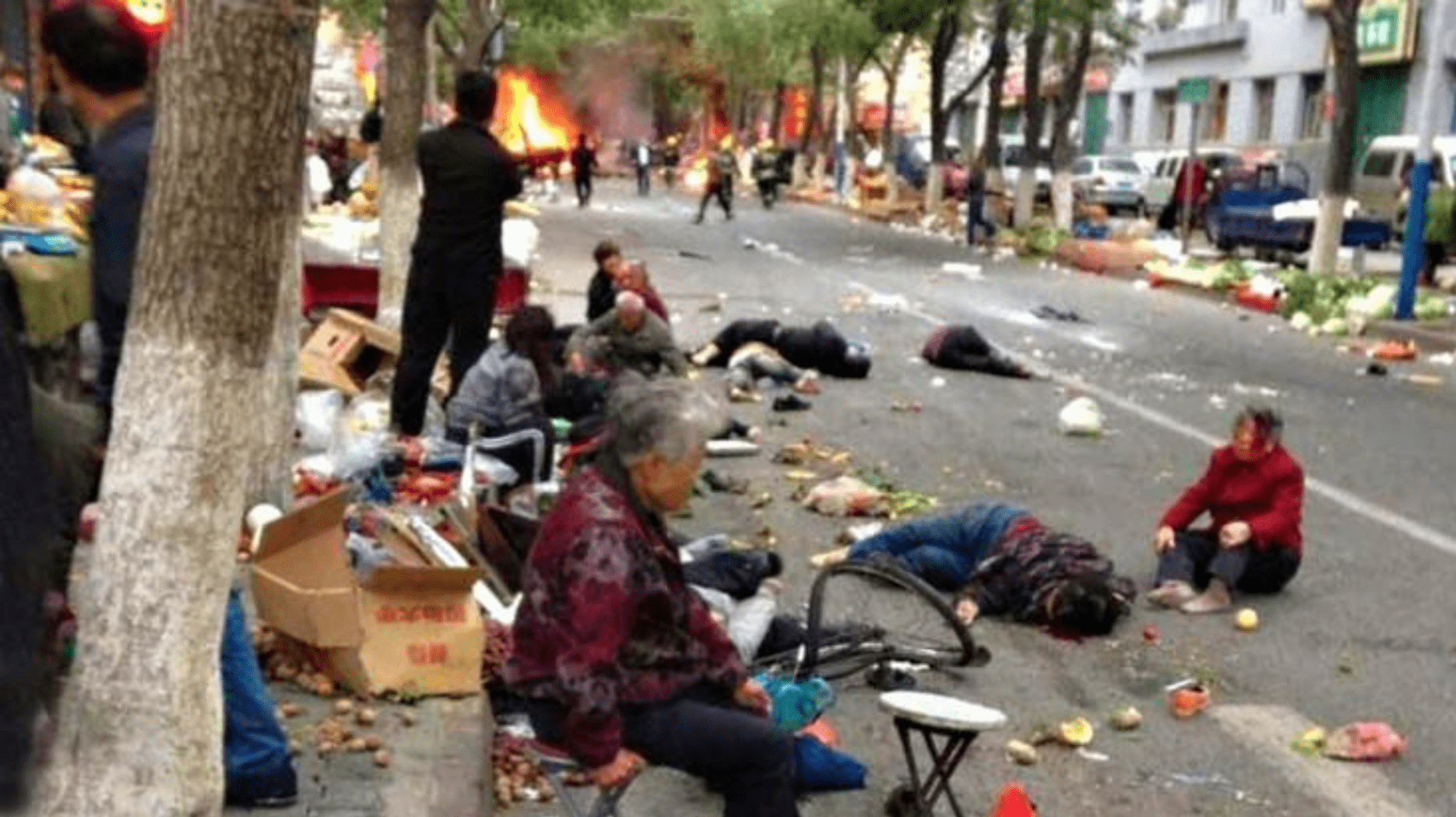Islamist and other terrorists are usually a tiny minority with the potential to terrify majorities.
For several years, Chinese citizens have been under massive threat from bombings by Islamist Uyghurs in subways, buildings and elsewhere.
The Uyghur Islamists were unable to make the most of the media for their purposes because the Chinese government did not want to do the terrorists the favor of making their murderous deeds obvious and therefore censored them whenever possible.
The government’s main thrust was to isolate the terrorists and their sympathizers without alienating the majority of Muslim citizens.
For example, they refrained from responding to Uyghur terror with state terror, such as carpet bombing of densely populated areas or other collective measures to “punish” many innocent people. Beijing knew that this would only have played into the hands of the terrorists.
Anyone who has researched the history of Uyghur terrorism in China knows that prosperity, not repression, ultimately thwarts the terrorists’ plans. So terrorists and their domestic supporters were dealt with harshly, but at the same time huge sums were invested in state-of-the-art infrastructure and the economy was made to flourish.
The terror problem was solved when terrorists were no longer able to recruit a sustained stream of desperate, destitute and therefore easily radicalized people. The same strategy that worked in Xinjiang would also be effective in Gaza: people must see a future of prosperity and security so that the extremists lose their appeal.

